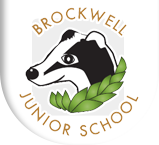‘Religions are different roads converging at the same point. What does it matter if we take different roads as long as we all meet the same goal?’ – Mahatma Gandhi
RE lessons are delivered using the JIGSAW scheme and continues to reflect the statutory requirements of the Derbyshire Agreed Syllabus. Each unit is presented as an enquiry question and within this, children develop knowledge and understanding of the beliefs and practice of world religions. Alongside gaining this substantive knowledge, children are encouraged to think critically and evaluate the enquiry through questioning and personal reflection.
The syllabus is non-denominational and multi faith in character. Collective worship is daily through our whole school assembly that is broadly but not exclusively Christian in nature. Friday assemblies are a celebration of excellent attitudes to learning and social or academic achievement.
RE explores big questions about life, in order to find out what people believe and what difference this makes to how they live, so that pupils can make sense of religion and worldviews, reflecting on their own ideas and ways of living.
Policy Statement
RE Enquiry Progression Map
RE Intent Implementation Impact
RE Coverage by year group
Throughout KS2, pupils learn about Christians, Hindus, Jewish people and Muslims as well as Humanists. They make connections between differing aspects of religion and consider the different forms of religious expression. They develop a knowledge and understanding of this range of religions and worldviews.
They consider the beliefs, teachings, practices and ways of life central to religion. They learn about sacred texts and other sources and consider their meanings. They begin to recognise diversity in religion, learning about similarities and differences both within and between religions and beliefs and the importance of dialogue between them. They extend the range and use of specialist vocabulary. They recognise the challenges involved in distinguishing between ideas of right and wrong, and valuing what is good and true. They communicate their ideas, recognising other people’s viewpoints. They consider their own beliefs and values and those of others in the light of their learning in RE
